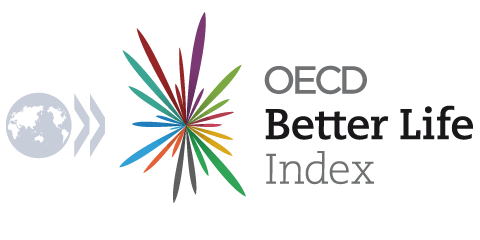Happiness on the podium
By Julia Laplane, OECD
"The Olympic movement gives the world an ideal which reckons with the reality of life”, so said Pierre de Coubertin, founder of the modern games: This ideal goes far beyond the world of sports and echoes a universal quest for happiness and well-being. It is also a valuable reminder that while keeping track of reality, one should constantly strive towards a better life.
The Olympics are all about universality and humanity, opposing nations in sport while uniting people throughout the world. The three Olympic values, of “excellence”, “friendship” and “respect” underline the universal appeal of the Olympic Movement. His Majesty Jigme Singye Wangchuck King of Bhutan, when outlining his vision of “Gross National Happiness”, referred to similar ideals: “As citizens of the world, our unifying force, our strength must come from something that is not bound by nation, ethnicity or religion – from fundamental human values. Values shape the future of humanity.” How do we reconcile these ideals with everyday life concerns?If asked about the Olympics, Londoners are more likely to raise more mundane concerns, revolving around overcrowded streets and the difficulty of obtaining tickets for their favourite sporting event. So can we say citizens around the world unite in their definition of happiness and do their priorities coincide? Well not really, to judge by people’s choices when building their own Better Life Index.
Some common trends across countries emerge. Governance, for example, is surprisingly unimportant to many people. Are people fed up with their governments in the wake of the economic crisis? Or do they take their political rights for granted? As one BLI user commented, voting in certain countries such as Belgium is mandatory, so the whole question of civic engagement takes on a different aspect. Life satisfaction and health, on the other hand, are very popular across the board. National trends in people’s choices also stand out. Almost half of the participants filling in the BLI survey gave safety the highest ranking in Japan, the strongest performer in that topic; while 46% of Dutch people think that work-life balance is more important. Can we say a country shapes its citizens’ identity and priorities? How can we explain that 74% of Finns rated the environment with a level of importance of 4 or 5 out of 5 on the Better Life Index? Although it is impossible to clearly identify factors behind people’s choices, it would seem that the protection of the environment is a long-standing and important issue in Finland: waste sorting was launched 20 years ago and 92% of recyclable plastic bottles were returned in 2010 under a bottle deposit system. A new National Waste Plan to 2016 was adopted in 2008 after wide consultation with stakeholders to increase material efficiency in consumption and production (OECD Environmental Performance Reviews: Finland 2009).This can help explain Finland’s good environmental performance in the Better Life Index, as well as general concern for this issue.
Location-specific factors clearly have an impact on what concerns us and while identities can be built nationally, priorities are often defined within a much smaller perimeter. This is why the Better Life Index aims to ask people what matters for a better life, as a question of personal choice. For many urban dwellers, for example, everyday concerns are often linked to transport. This may explain why on the 24th of July, signalman John Light brought the Olympic torch along the District Line from Wimbledon to Wimbledon Park, in a train adorned with the Olympic rings. This will probably be of little comfort to Londoners however, as results from the Happiest Commuter Index, launched just a month ago by a transport charity in the UK, Campaign for Better Transport, found that London has one of the lowest scores, based on affordability, overcrowding and punctuality, among the eleven cities under scrutiny.
The graph below shows how people in different countries created their indicator and set their priorities. If you click on a topic, you will see how people from various countries rated this topic on a scale from 0 to 5. Country tags give details on how people voted in that specific country. For each topic, the three countries with the highest number of combined votes are shown in a different colour.
Click on the image to start the race.*
*Only countries which have more than 50 shares are shown.


Commenti